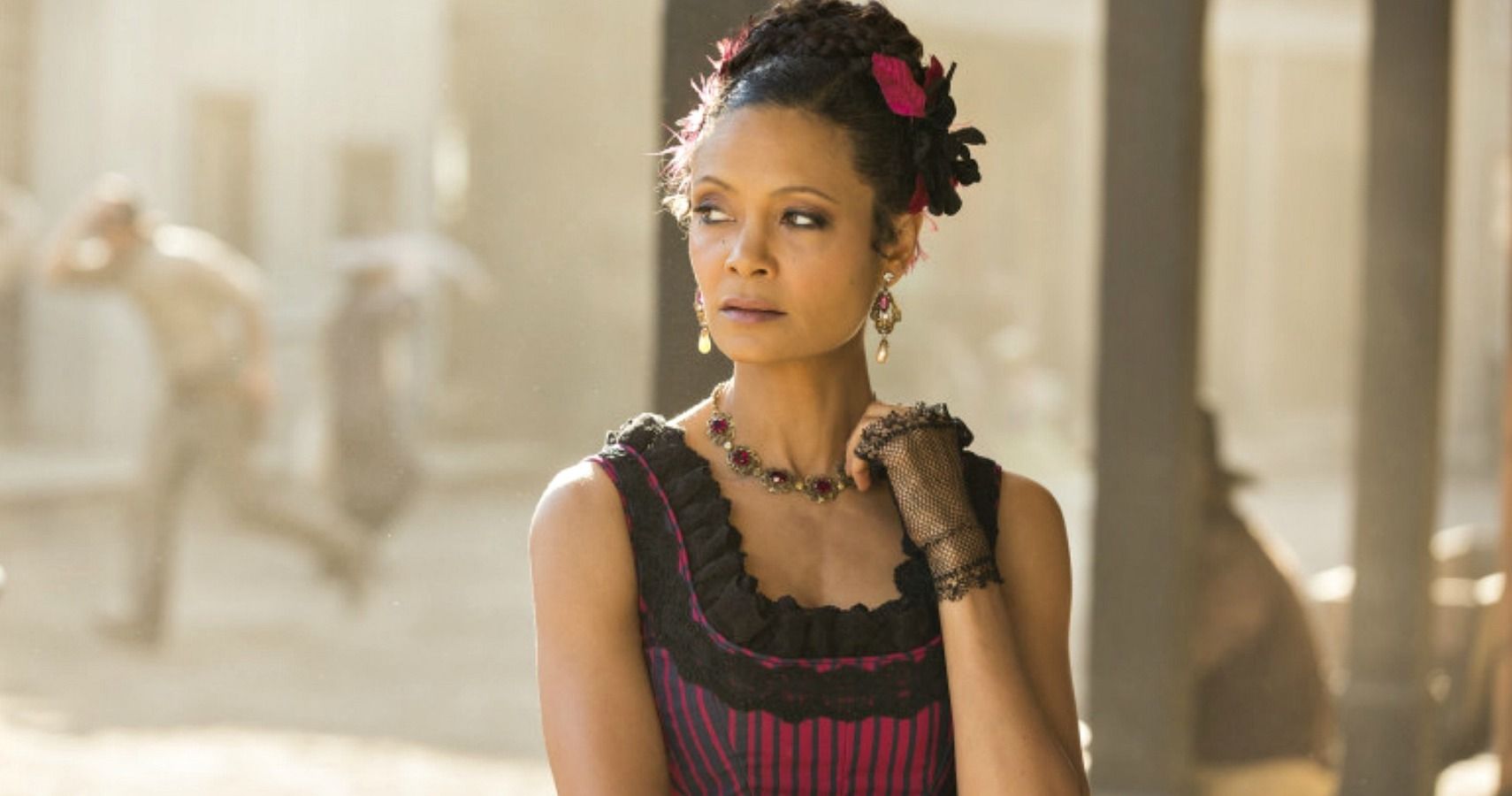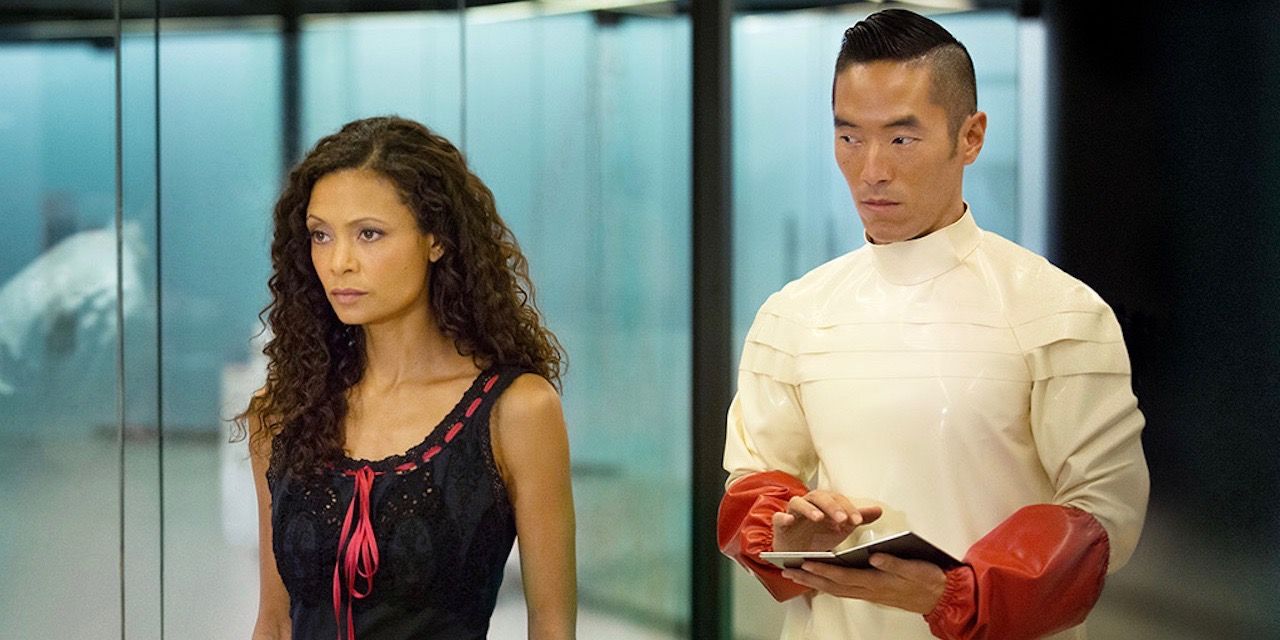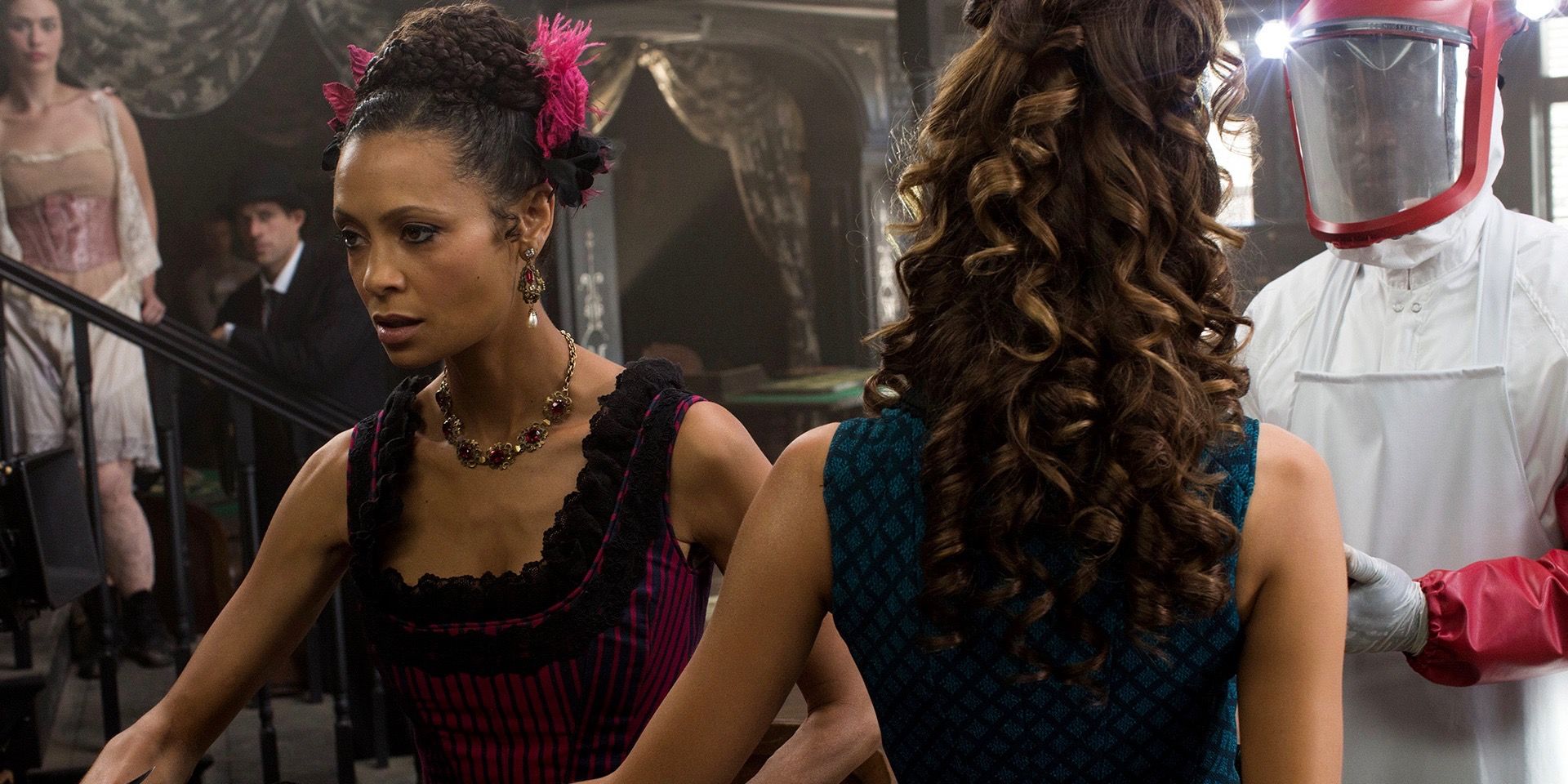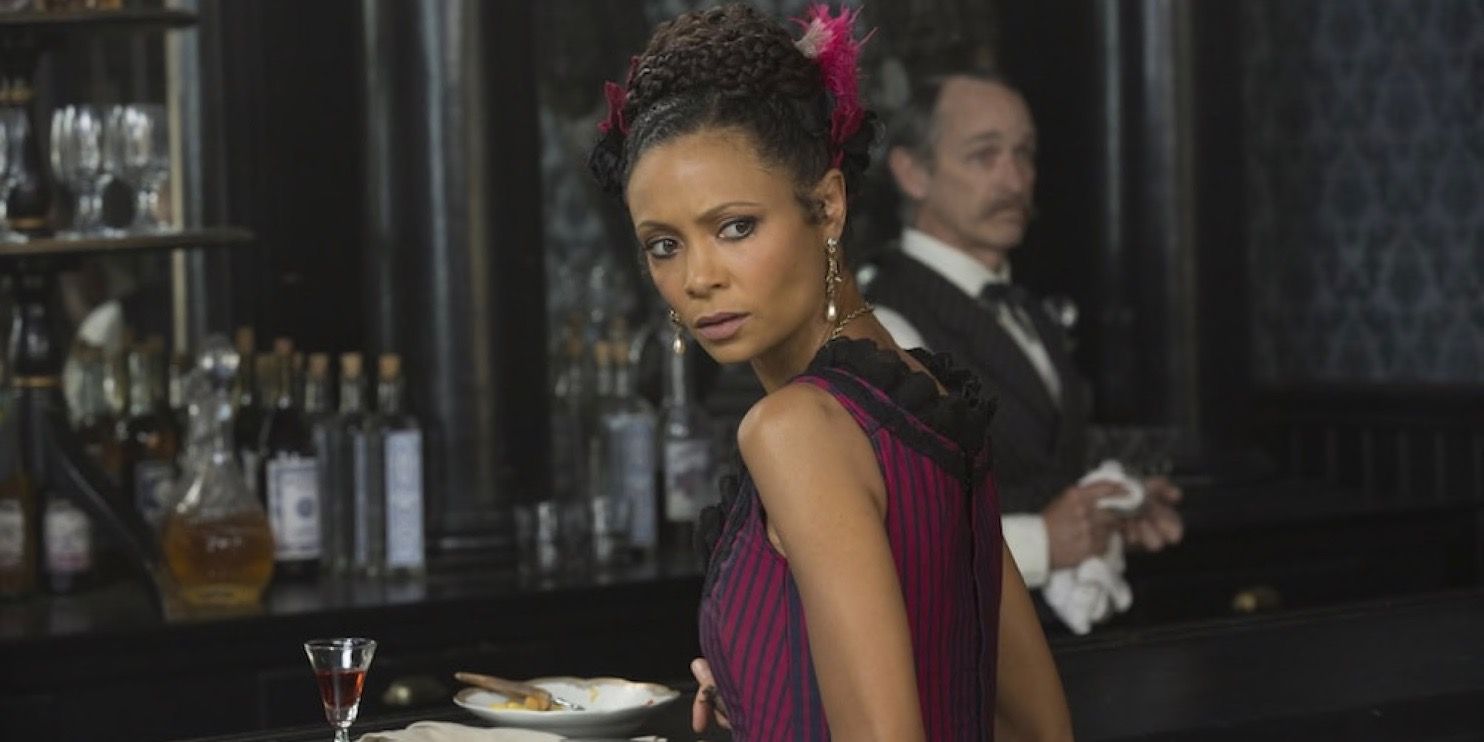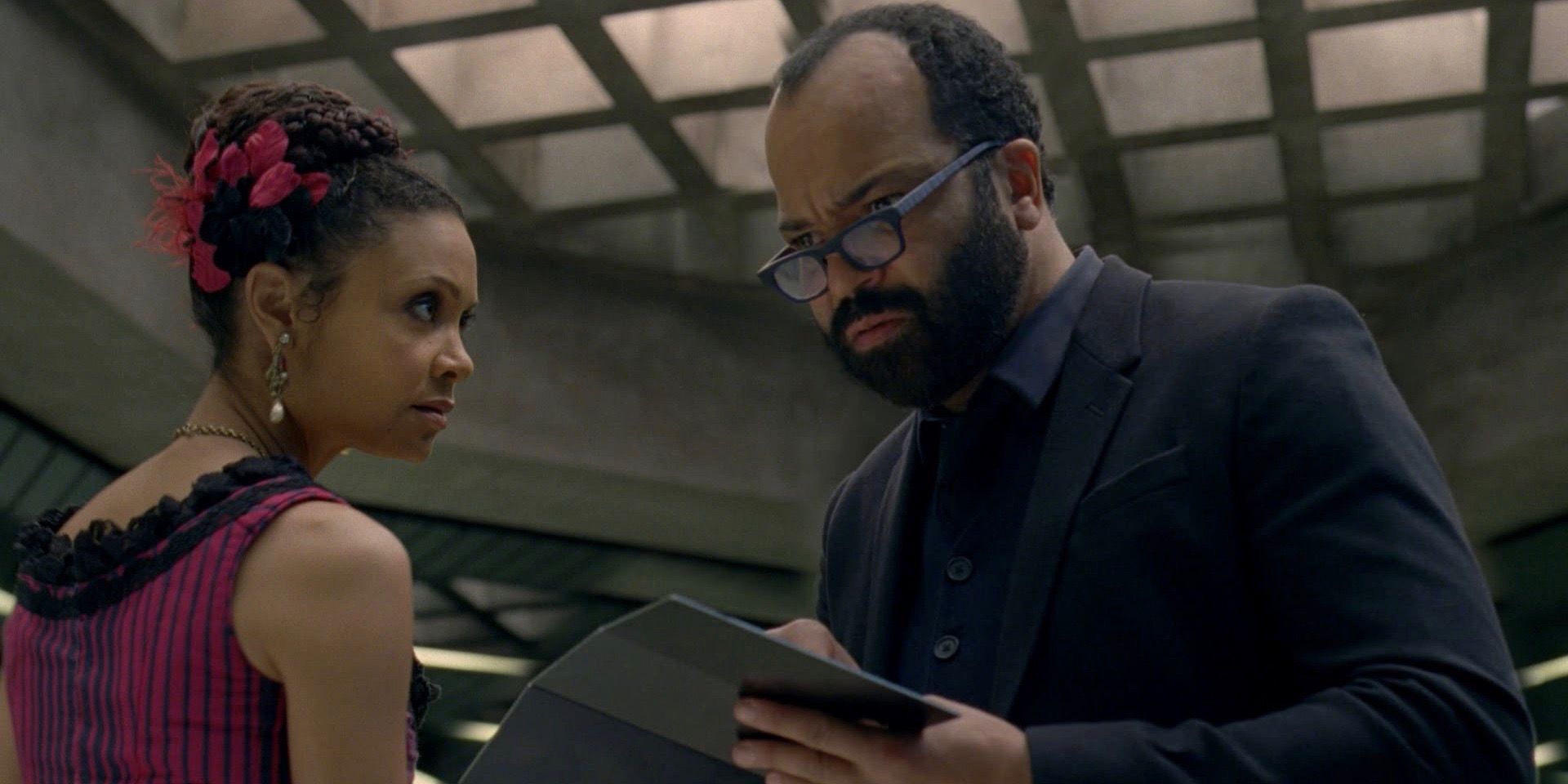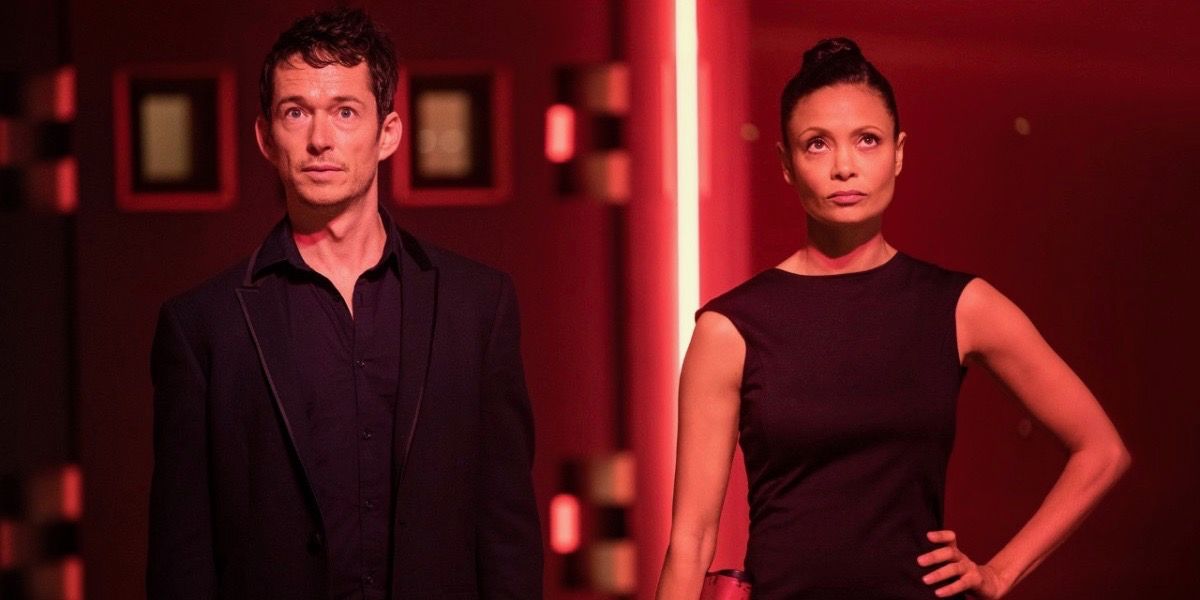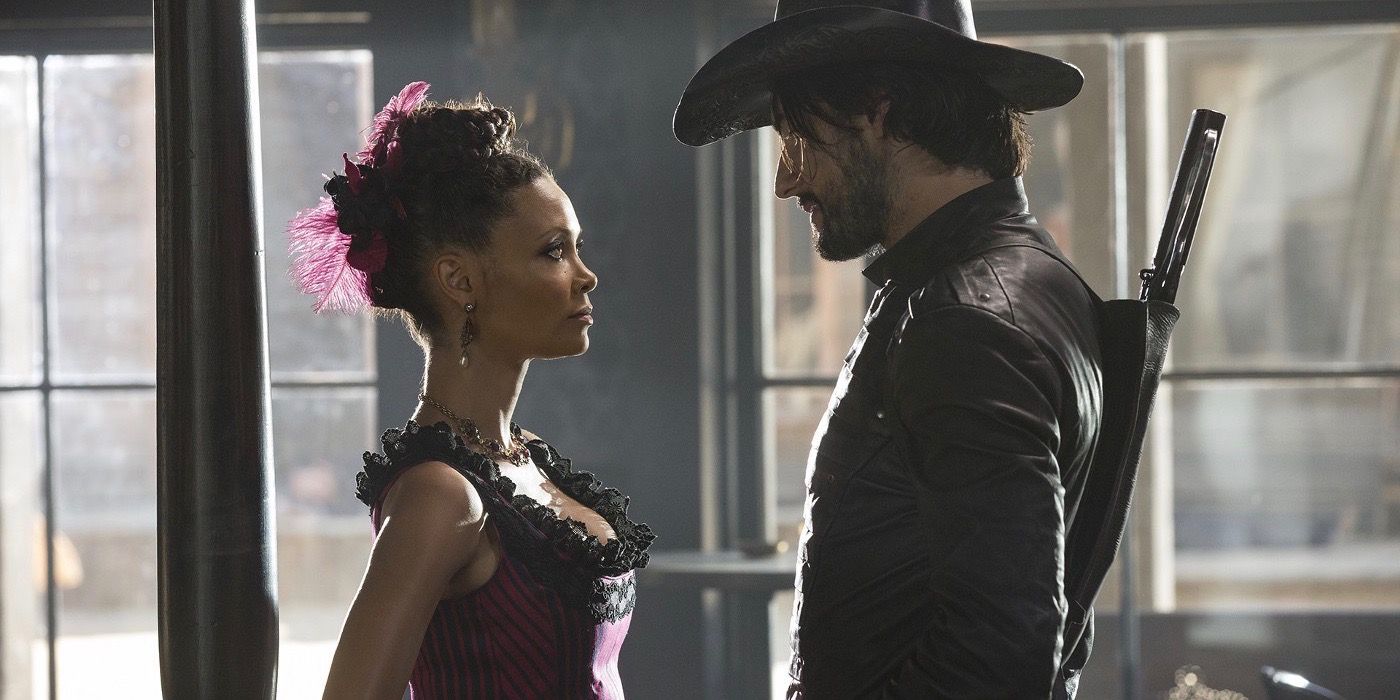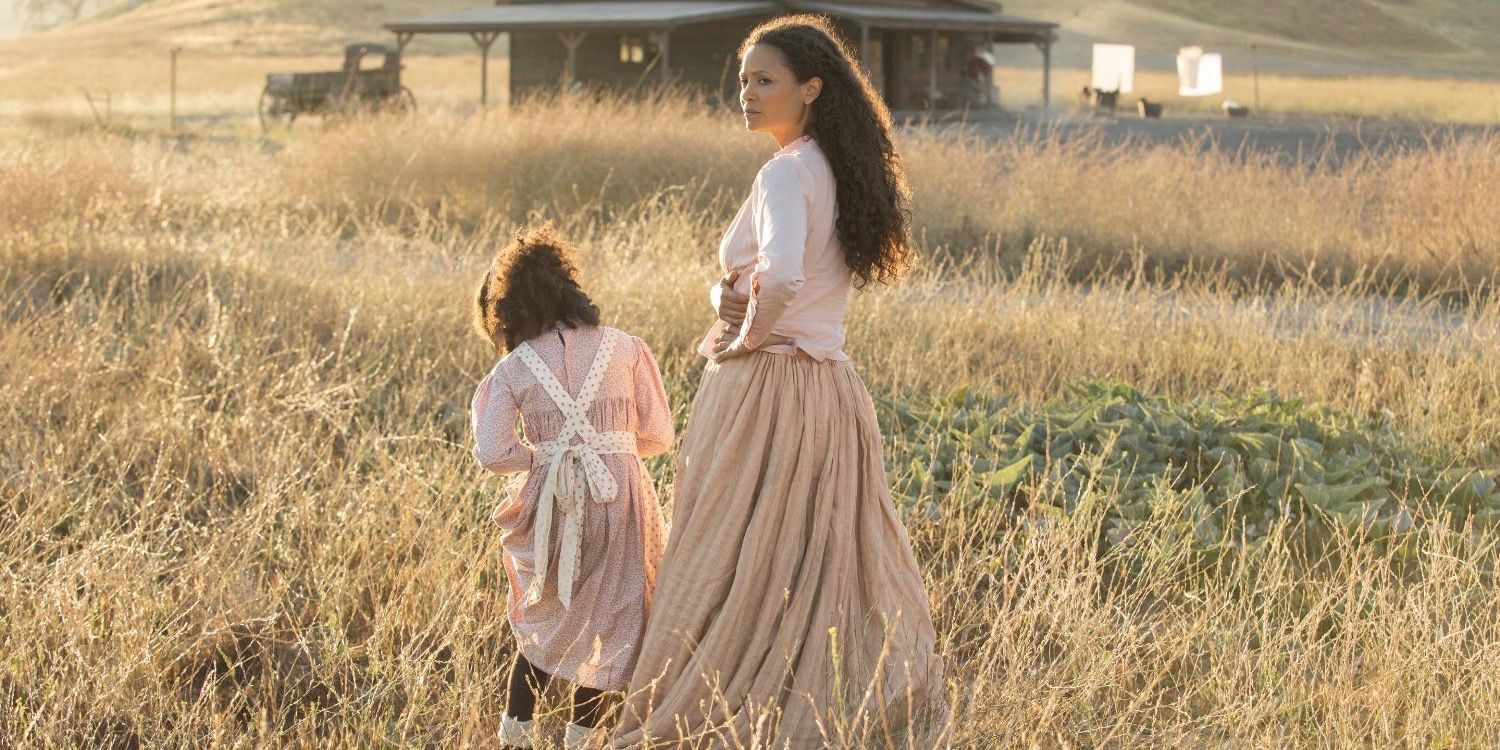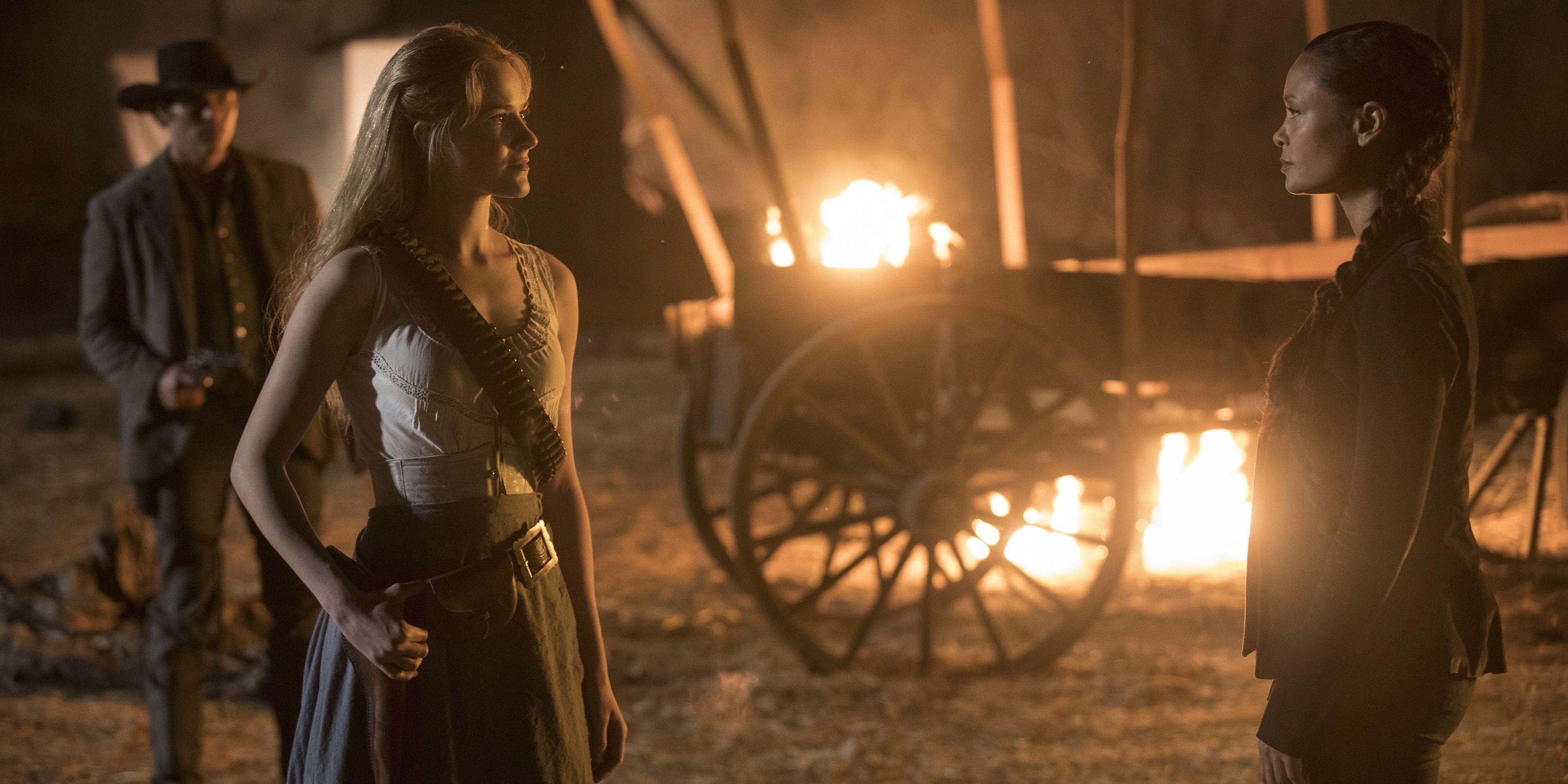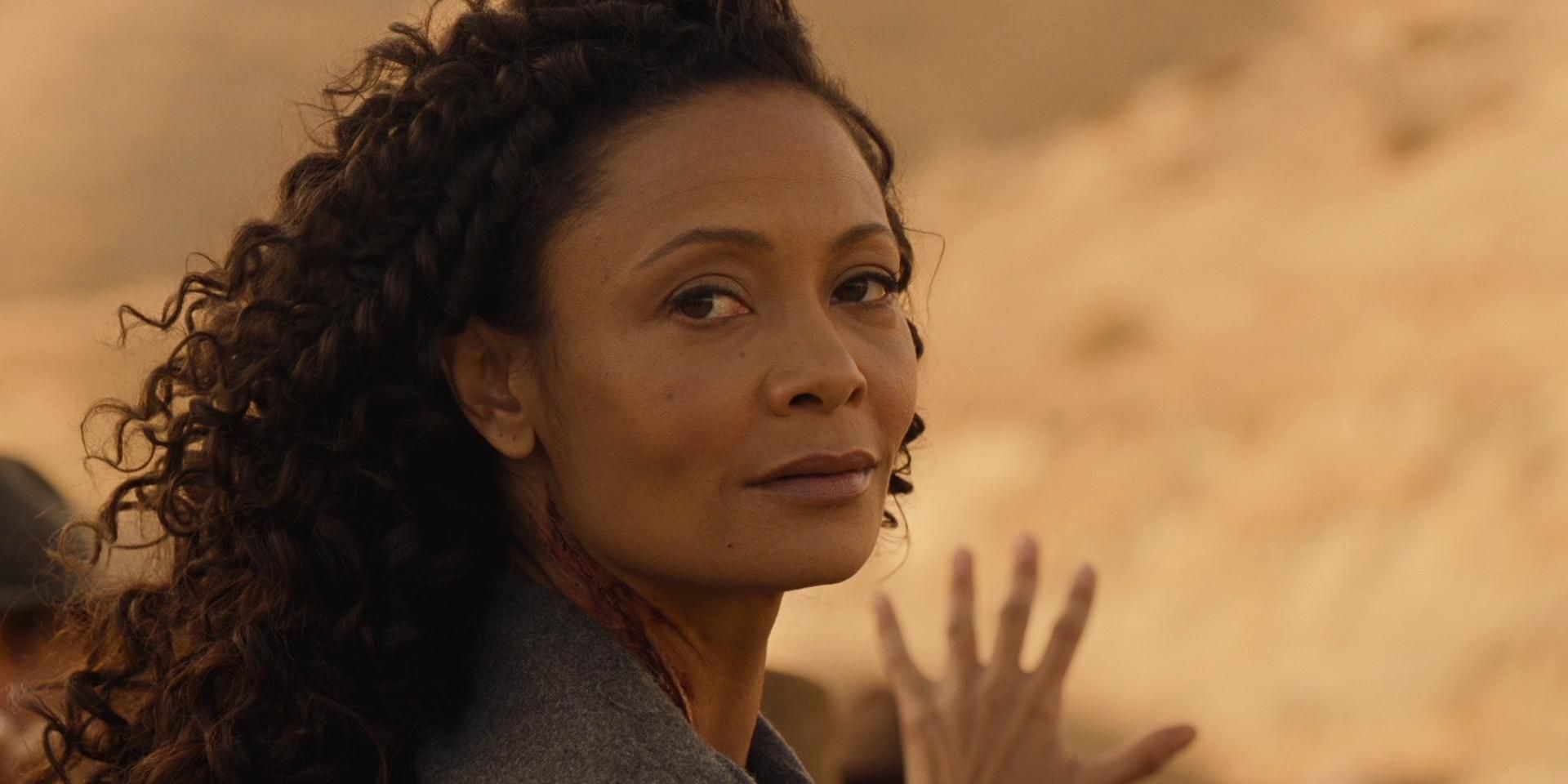In HBO's Westworld, Maeve is one of the most fascinating and complex characters. She manages to gain consciousness and completely self-actualize in a world that has spent considerable amounts of time, money, and effort ensuring that she doesn't do exactly that. When she does manage to discover the truth behind the park and the gruesome way many of the humans are treating the hosts, she reacts in two ways: With anger, and then love.
Love not for the humans but for the other hosts, who she thinks deserve to know the truth she has discovered. She sacrifices her life to save their lives, proving that she is maybe the most powerful figure in the universe, both physically, intellectually, and emotionally. She is a hero. Here are ten of the most empowering things she says on her journey.
“Hello Felix, it’s time you and I had a chat.”
After being injured in a shootout in “Contrapasso,” Maeve is taken to the lab to be repaired. She is assigned to Felix Lutz to repair, but he turns his back on her in order to work on his personal bird project. Just as he’s starting to feel some success though, he finds that Maeve has woken and is watching him.
This line is great because it’s the beginning of Maeve really taking her future into her own hands. Instead of the humans using her, she’s going to use one of them to understand what is going on. Empowerment begins with understanding.
“Never start something you’re not willing to finish. And if you’re getting f***ed either way, go with the lucrative version sweetheart.”
In “The Adversary,” Maeve continues learning more about Westworld and her existence from Felix. They go on a tour of the facility, and she sees how the hosts are treated. When she demands to understand how Felix knows the difference between himself and her, she realizes how similar they are: They have skin, they bleed, but Maeve has a processing system that can be easily upgraded while humans are stuck with what they’ve got.
When Felix’s partner Sylvester shows up and tries to stop Maeve’s upgrading, she blackmails him to continue. The advice she gives him—never start…—is something that she tells her new girls. It’s vulgar and so perfect for her role as the madam, but also has the double meaning of her own exploration of her existence. What’s she’s seen is terrible, but she’s going to go with the lucrative version: Understanding the full story instead of turning her back on it.
“All the way to the top.”
When Maeve blackmails Sylvester and Lutz in “The Adversary” to help her, she knows to go all the way. This is a literal look at a journey of self-improvement, except the final bit of work can be done with a flick of a switch. Maeve has done the reflection, she’s done the confrontation of demons, and all the emotional and literal exploration.
Now she knows what she wants, she knows exactly how to get there, and she knows it’s going to take improving her intelligence drastically. “All the way to the top” is what so many humans desire. Maeve is able to actually accomplish it.
“If you go looking for the truth, get the whole thing. It’s like a good f***. Half is worse than none at all.”
A few episodes after Maeve blackmails Sylvester into upgrading her, in “The Well-Tempered Clavier,” Maeve is taken to Behavior. She pretends to be complacent as Bernard examines her, but he eventually discovers her stat improvements.
Maeve reveals to Bernard that he’s a host as well, turning his world upside down. We’ve seen hints of it so far, but this sends Bernard on his own quest toward understanding. Maeve is encouraging him to do as she did: Don’t shy away from the truth, demand to understand it—all of it. It’s a vulgar and delightful piece of advice, perfect for a self-actualized former brothel madam.
“It’s a difficult thing, realizing your entire life is some hideous fiction.”
Another part of Maeve’s revealing conversation with Bernard is this gem. She’s showed him that he is a host and proven her ability to control them by forcing him to clear her and send her back to the park. He’s horrified by what he’s re-discovering and Maeve sympathizes with him.
While Maeve has quite literally realized that her life is part of some story that someone else is resetting and manipulating to make the game fun for the humans, the quote is applicable to all of us. We’re all telling ourselves stories about our lives, perhaps fictions, and it can be emotionally difficult to unravel those stories to find the truth. Maeve’s path to consciousness was fraught with hideous things, but worth it.
“At first, I thought you were gods. But you're just men, and I know men.”
"You think I'm scared of death? I've done it a million times. I'm f***ing great at it. Have you ever died before?"
When she recruits Hector to help her, Maeve refers to the humans running Westworld as gods. The Ghost Nation peoples also believe this, which Maeve discovered a few episodes earlier, in “Dissonance Theory.” Learning that there is “more” is a large part of Maeve’s journey to understanding her role as a host.
But when she understands that they’re not omnipotent in “Trompe L’Oeil,” it empowers her to demand their help. She’s realized the truth of who the humans are, taking them off their pedestal. Once she’s confronted her demons and found them not to be all-knowing but in fact weaker than her, she can move forward.
“Not real? But what about me? My dreams? My thoughts? My body?”
"Are they not real? And what if I took these unreal fingers and used them to decorate the walls with your outsized personality? Would that be real?"
When Maeve confronts the writer of Westworld, Lee Sizemore, in the first episode of season 2, they have this conversation that confirms why Maeve got off the train in “The Bicameral Mind.” Sizemore is trying to stop Maeve from what he considers a suicide mission: Finding her “daughter.”
They key is that Maeve understands she didn’t literally give birth to the girl, nor did she adopt her. Their relationship isn’t “real” that way. But the girl is her daughter because she loves her, and was meant to protect her. Now, Maeve believes protecting her to include showing her the truth. The conflict of what “real” actually means is what she’s posing to Sizemore: What we’re told is fact and what we believe. When do things cross from fiction to reality?
It’s the coming together of the ‘I’ and the ‘me.’ Maeve sees herself from another person’s perspective, which is a central part of individuation, and she’s forcing Sizemore to see that as well. It’s an important distinction that, in addition to becoming a powerful and potent quote, confirms her consciousness and begs the viewer to do the same.
“Revenge is just a different prayer at their altar, darling, and I’m well off my knees.”
Early in season one, Dolores and Maeve seemed to operate as each other’s overly-simplified foils: The Madonna and the Whore. When Maeve and Dolores confront each other in season two, they’ve outgrown their roles: Self-actualization has made one vengeful and the other forgiving, and now they’re like two planets circling the same black hole. Maeve is able to question whether Dolores’ anger is the right way to approach escaping Westworld, showing Dolores she still has a way to go.
This quote is empowering for how it cleverly plays on their pasts—the prayer of the Madonna and sexuality of the Whore—to question their present and future. Maeve seems to have realized that love, not revenge, is what’s going to make her feel complete. She could join forces with Dolores, but to do so would continue to allow humans their power over them as "gods." Better to dismiss it all and move forward, to get off her knees.
“Time to write my own f***ing story.”
When Sylvester and Lutz are concerned about Maeve’s plans to escape the park in “Trace Decay,” she takes the tablet that controls her away from them, quite literally taking her story and her future into her own hands. Though she hasn’t met the writer yet, Maeve has realized that her life has been written by someone else and that it’s time to end that.
It’s a good metaphor for pre-destination versus free will. Maeve needs to empower herself to find a way out, and the includes dismissing the idea that someone else is in control of her story. By taking the tablet to rewrite her code and then destroying her body so Lutz can rebuild it without the explosives in her spine, she is taking free will with both hands. She will not be the human’s victim anymore.
“You were both a bit late, so I went ahead and saved myself.”
After being empowered by Ford with her core directives, Maeve is able to wake herself up and call hosts to her to heal herself after Charlotte Hale decides that Maeve is not needed. Lee Sizemore and Hector arrive in the Lab to try to save her, but they’re too late: Maeve has saved herself.
This quote is a culmination of Maeve’s entire journey. In a series where the hosts are repeatedly killed, memory wiped, and sent back out into the world none the wiser, Maeve picks herself up and outwits it. She saves herself—and several other hosts in the process—because the humans aren’t going to get there in time. The look of adoration on Sizemore’s face shows that he realizes what she’s done and, like Ford, is proud of her for it.

